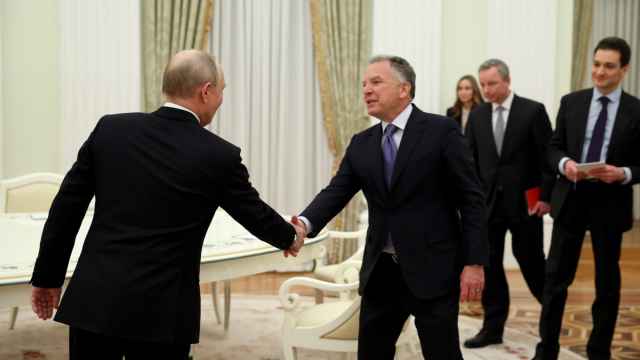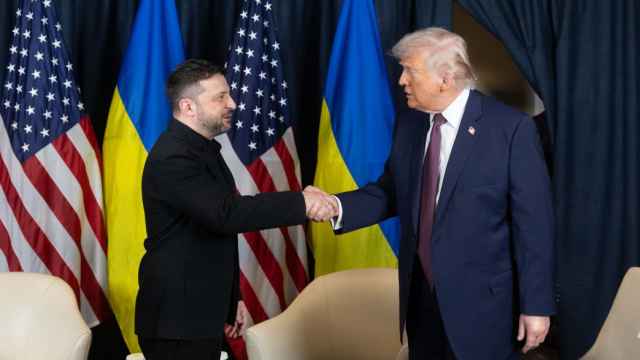When I was preparing for my first class in Moscow 10 years ago, I was told the schedule would be as follows: We would start at 10 a.m., there would be a 30-minute tea break at 11:30, then lunch at 1:30 p.m. for one hour and 15 minutes and end at 4 p.m. I quickly calculated this time period, taking into consideration that translation cuts the teaching time in half, and responded, "I don't think this schedule will be adequate, as it would mean I will be traveling halfway across the world at my own expense to teach only two hours per day. We have a great deal of important material to cover, so I would like the class to please start at 9 a.m. with a 20-minute tea break, one hour for lunch and end at 5 p.m."
The other two Americans who worked at the center where I would be holding my class balked. One said: "But you have to understand that these are Russians. They are not used to that type of schedule. You can't expect them to be on time. They are always late. You will need to learn how to adapt to their culture."
I replied, "These training classes are for health professionals, professors and clergy — all educated adults. I think Russians are perfectly capable of being responsible and on time. I want to encourage those who genuinely desire to be healthy, balanced individuals. I'm not here to enable dysfunction."
That first year presented many challenges when I listed a protocol for my classes that stated the hourly schedule plus the requirements for their all-important "certificate of completion." To receive this certificate, each student had to attend every class and small group, to have all homework done before class and could not be late more than one time. The students also were not allowed to use a cell phone or fall asleep in class. For many participants, these guidelines were excessively restrictive, and most thought I probably wasn't serious about withholding a certificate because of these infractions.
I knew a certificate of completion, which not only confirmed holders had finished all the class requirements but also allowed them to attend the next training level, was very important for students from the former Soviet Union. During Soviet times, when financial rewards were obsolete, certificates and medals were greatly valued. Plus, present salary raises often depended on this certificate.
In those first classes, each consisting of 20 to 50 people, many of the students were wonderful, followed the protocol and fully participated. But there also were those who came in late, who arrived without their homework, who talked and texted on their cell phones, who sat in the back row talking back and forth among themselves, and who fell asleep because they had stayed up way past midnight.
I said it was disrespectful to the other students and to the teacher when they wandered in late or missed classes, and they were also being disrespectful to themselves when they didn't take advantage of the opportunity to grow both personally and professionally.
During one class, a physician came to me and announced that she would be absent the next day to see patients. I replied that this was her choice, but she would not receive a certificate if she missed the class. She looked astounded and said, "Well, I heard you were strict, but I did not know you were very strict!"
During the first year, few believed I was serious until the last day of each class when several students received only a certificate of attendance, not completion. They could not attend the next advanced class until they repeated the present one. When a Moscow State University of Psychology and Education professor who missed an afternoon class for an important meeting at the university also did not receive a certificate of completion, the students realized I was resolute regarding this situation. Setting a boundary with definite consequences regarding violations of time and attendance was mandatory. Otherwise, boundaries were useless.
In our advanced classes, we have had in-depth discussions regarding the shifting of values and traditions. I was told that when Josef Stalin was enforcing his five-year plans for mass industrialization, there were strict laws and consequences regarding worker tardiness and absenteeism. But in later years as Soviet citizens became less committed to advancing the cause of the state and more disillusioned with what the state was providing for them, there was an unwritten mantra: "You pretend to pay us, and we pretend to work."
In addition, I learned that today in some universities, while there are many excellent professors, classes and students, there also are students who are tardy to classes or who do not attend at all — and still receive a passing grade because they have paid for it.
For many people, the concept of taking education or an occupation seriously became damaged and distorted. Teachers and employers as well as students and employees felt disrespected and not valued. While this situation has improved during the past two decades, it still creates difficulties where laxities continue to be allowed. Foreign businesses often relate that they have Russians employees who are intelligent and capable, but finding ones who also are committed to being responsible and time-efficient remains problematic.
I recently finished my 120th class in Russia with the same protocol as in 2002. Now I have little need to worry about students being on time or missing a class. Word travels fast, and every student knows in advance what is expected. The majority willingly participates. All the graduates of our Instructor Training program also use the same protocol in their classes throughout the Commonwealth of Independent States, and they are pleased with the results. They often tell me their classes run more smoothly when everyone is on time and committed to full participation. Even our students now prefer this over the old system.
Confronting a heavily embedded tradition of carelessness regarding time and responsibility has been an integral portion of our classes with the structure becoming almost as significant as the content actually studied. Learning how to be respectful and valuing oneself and others is essential if a person genuinely desires to mature and become all he is designed to be.
Unfortunately, today in Russia, being respectful of others is not a primary value for multitudes of people. It is especially obvious when even high-level political leaders are exceptionally late for meetings, even with other high-level leaders. Consistent tardiness is not only rude, but a passive-aggressive declaration of power and control.
It will be interesting to see Russia's transformation in the coming years as new leaders emerge who believe mutual respect and the value of every individual are more important than power and control.
Marilyn Murray is an educator specializing in the treatment of trauma, abuse and deprivation, with more than 2,000 people attending her classes in Russia and other countries from the Commonwealth of Independent States over the past 10 years. Her second book, "The Murray Method," will be released in English and Russian this summer. You can read her interview with The Moscow Times here.
A Message from The Moscow Times:
Dear readers,
We are facing unprecedented challenges. Russia's Prosecutor General's Office has designated The Moscow Times as an "undesirable" organization, criminalizing our work and putting our staff at risk of prosecution. This follows our earlier unjust labeling as a "foreign agent."
These actions are direct attempts to silence independent journalism in Russia. The authorities claim our work "discredits the decisions of the Russian leadership." We see things differently: we strive to provide accurate, unbiased reporting on Russia.
We, the journalists of The Moscow Times, refuse to be silenced. But to continue our work, we need your help.
Your support, no matter how small, makes a world of difference. If you can, please support us monthly starting from just $2. It's quick to set up, and every contribution makes a significant impact.
By supporting The Moscow Times, you're defending open, independent journalism in the face of repression. Thank you for standing with us.
Remind me later.





